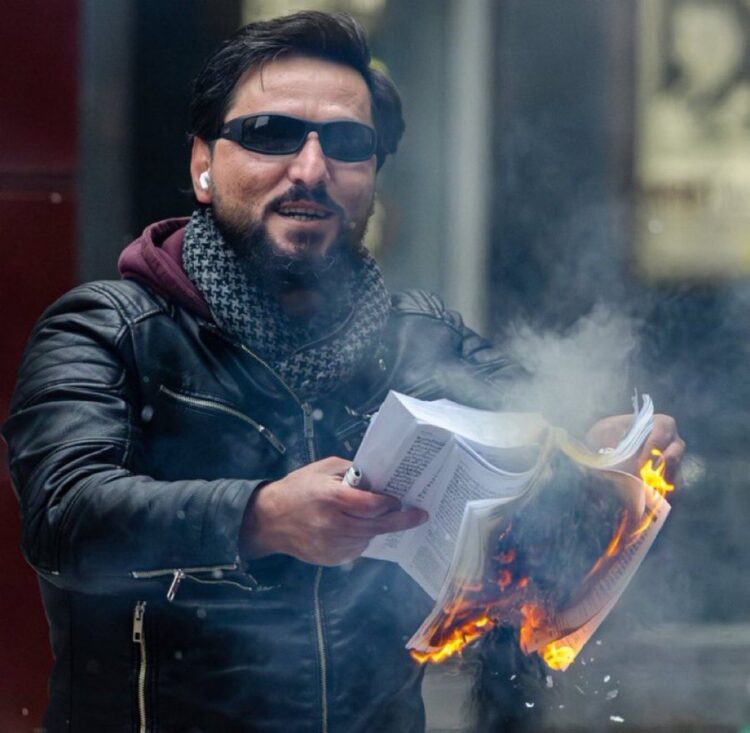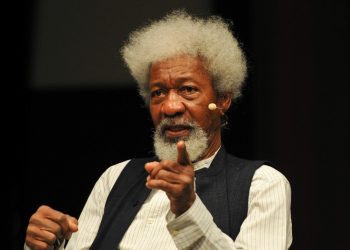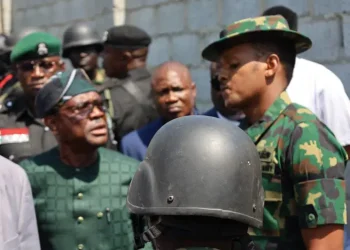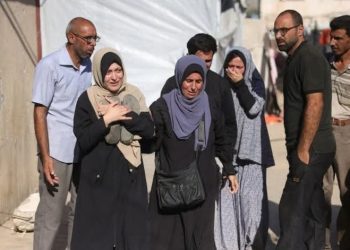In a shocking turn of events, Salwan Momika, a 38-year-old Iraqi refugee known for his controversial anti-Islam protests, was shot dead in his apartment in Södertälje, near Stockholm, while conducting a live stream.
The incident occurred on the evening of January 29, 2025, and has since ignited a firestorm of reactions both domestically and internationally.
Salwan Momika gained notoriety for his public Quran burnings in Sweden, actions that he carried out multiple times in 2023, leading to widespread protests and diplomatic tensions.
His protests, which involved setting fire to copies of the Quran, were intended, as he claimed, to protect Sweden from what he described as the messages of the book.
These acts, however, were seen by many as blasphemous and incited violence, drawing criticism from several Muslim-majority countries and causing unrest among Sweden’s Muslim communities.
The live stream was abruptly cut short when the police arrived at Salwan Momika’s residence following reports of gunfire.
Swedish authorities confirmed the cessation of the broadcast by posting a video of the moment the police intervened, marking the end of Momika’s live transmission.
According to reports, five individuals have been arrested in connection with the shooting, though details regarding their involvement, including whether the shooter was among them, remain undisclosed by the police.
Swedish Prime Minister Ulf Kristersson addressed the media, hinting at possible foreign involvement in the assassination, stating, “There is obviously a risk that there is a connection to a foreign power.”
This statement underscores the international dimensions of the case, suggesting that Momika’s provocative actions might have repercussions beyond Sweden’s borders.
The Swedish Security Service is actively investigating the potential impact of this event on national security.
Momika’s controversial activities had legal ramifications as well.
He was facing charges related to his Quran burnings, with a trial verdict scheduled for the following day, which was postponed due to his death.
The Stockholm District Court confirmed that one of the defendants in the case had passed away, leading to the delay.
Momika had previously been investigated for incitement against ethnic groups in Sweden, and his actions were partly blamed for delays in Sweden’s NATO membership process due to backlash from countries like Turkey.
Before his death, Salwan Momika had a complex background.
He was part of armed militias in Iraq before fleeing the country and had been accused by Iran of being a Mossad agent.
Contrary to some claims, Momika was not a practicing Christian; his actions were described as not representing any religion but himself, as per a post by Suppressed News on X.
Momika had also sought asylum in Norway after Sweden’s migration authorities issued a deportation order against him, citing false information on his residency application, though his deportation was on hold due to fears of his safety in Iraq.
The incident has reignited debates over freedom of expression versus respect for religious sentiments.
While Sweden’s laws strongly protect freedom of speech, allowing such demonstrations, the global reaction to Salwan Momika’s actions highlighted the tension this freedom can create when it intersects with deeply held religious beliefs.
The Swedish government, while condemning the Quran burnings, has faced the challenge of balancing these fundamental rights with maintaining international relations and domestic harmony.
This tragic event not only marks the end of a controversial figure but also serves as a stark reminder of the volatile nature of religious and political discourse in today’s globalized world.
The investigation into Salwan Momika’s murder continues, with the Swedish authorities promising a thorough probe into all aspects of this case, including any potential foreign interference.
































